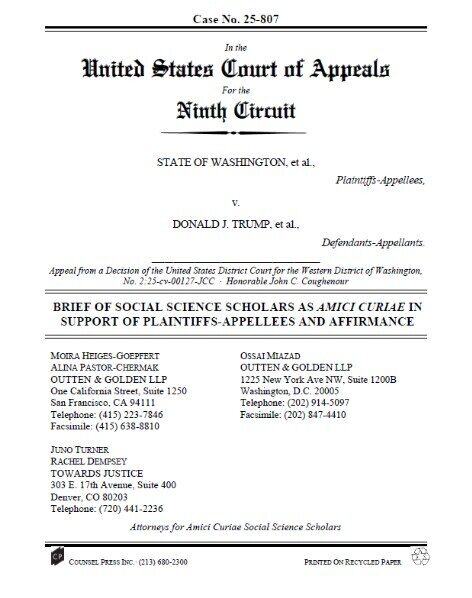Hirokazu Yoshikawa
KJJ Research Prize Laureate 2025
How does a parent’s immigration status shape a child’s life?
A parent’s undocumented immigration status can negatively contribute to the development of a child’s early cognitive development by limiting access to resources, increasing stress, and reducing engagement in learning opportunities.
The Impact of Immigration Status on Children
In the book “Immigrants Raising Citizens” (2011), Hiro shows that undocumented parents’ legal vulnerability is associated to limited access to services, exploitative work conditions, and high stress - all of which reduce children’s early learning and developmental opportunities. By age two to three, these disadvantages already have a negative impact on children’s cognitive development.
This body of work influenced Supreme Court briefs on mixed-status families.

Publications
Chandrika Bahadur
Former Director, Education Initiative, Sustainable Development Solutions Network
Why was early childhood development made a global priority in the Sustainable Development Goals?
Early childhood development was made a global priority because the first years of life shape how children grow, learn, and relate to others. Studies show that giving children good nutrition, healthcare, and early learning helps them do better in school, life, and work, and reduces inequality.
Shaping SDG 4.2: Ensuring Learning and Equity for Every Child
As co-chair of the Sustainable Development Solutions Network, Hiro co-authored policy
briefs that showed why early childhood matters for equity and lifelong well-being.
This work helped shape SDG Target 4.2, which ensures that every child has the right to quality early childhood development, care, and pre-primary education worldwide.
SDG Target 4.2:
By 2030, ensure that all girls and boys have access to quality early childhood development, care and pre-primary education so that they are ready for primary education.
Publications
Carolina Maldonado Carreño
Professor and co-director of the Early Childhood Education research group at Universidad de Los Andes
How can we make sure all children have access to good-quality early education as we expand public services?
Expanding early childhood education in low- and middle-income countries is both urgent and challenging. Countries need tools to monitor quality that fit local standards and culture, ensuring all children not only have access but access to good learning.
Ensuring Quality from the Start
Expanding access to early childhood education is important, but high-quality programs have the greatest impact on children’s learning, development, and life chances.
Hiro’s work in Colombia with the Universidad de los Andes illustrates this principle and has significantly influenced early childhood education policy in Colombia.
Key benefits of this approach:
- Reaching the most vulnerable: Rural, indigenous, and conflict-affected children must be acknowledged and included in national policy implementation.
- Quality counts: Public programs must be genuinely effective, not just widely available.
- Proven impact: In Colombia, a rigorous measure of teacher–child interaction - developed and validated by Hiro and colleagues- is now part of the national preschool monitoring system, helping improve children’s learning and future opportunities.